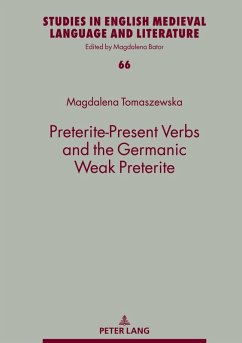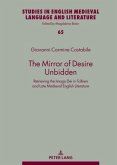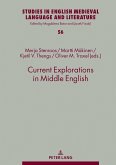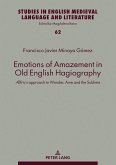Preterite-present verbs and the Germanic weak preterite have already attracted considerable scholarly interest. Usually, however, they are treated separately. One of the aims of the present monograph is to illustrate the history of Germanic preterite-present verbs against a broader background, with special reference to six preterite-presents that developed into Present-Day English modal auxiliaries. Another aim is to draw a parallel between the weak preterite markers in the Germanic preterite-present and weak verbs, and show the evolution of English preterite -ed in a new light.
Chapter 1 introduces the basic linguistic concepts and terms associated with 'verb'. Verbs are discussed and exemplified in a diachronic and geographical perspective. The approach is aimed at drawing attention to the fact that 'verb' is an umbrella term for various linguistic phenomena. The remaining chapters deal with Germanic verbs. Chapter 2 shows the interplay between strong and weak verbs in the history of English, and presents paradigms and characteristics of Germanic preterite-present verbs in a broader perspective. Chapter 3 focuses on main semantic and morphosyntactic properties, as well as synchronic and diachronic tendencies in the evolution of six English preterite-present verbs. They developed into either core modal auxiliaries (can, could, may, might, must, shall, should), or marginal modal auxiliaries (ought and dare).
Chapter 1 introduces the basic linguistic concepts and terms associated with 'verb'. Verbs are discussed and exemplified in a diachronic and geographical perspective. The approach is aimed at drawing attention to the fact that 'verb' is an umbrella term for various linguistic phenomena. The remaining chapters deal with Germanic verbs. Chapter 2 shows the interplay between strong and weak verbs in the history of English, and presents paradigms and characteristics of Germanic preterite-present verbs in a broader perspective. Chapter 3 focuses on main semantic and morphosyntactic properties, as well as synchronic and diachronic tendencies in the evolution of six English preterite-present verbs. They developed into either core modal auxiliaries (can, could, may, might, must, shall, should), or marginal modal auxiliaries (ought and dare).








